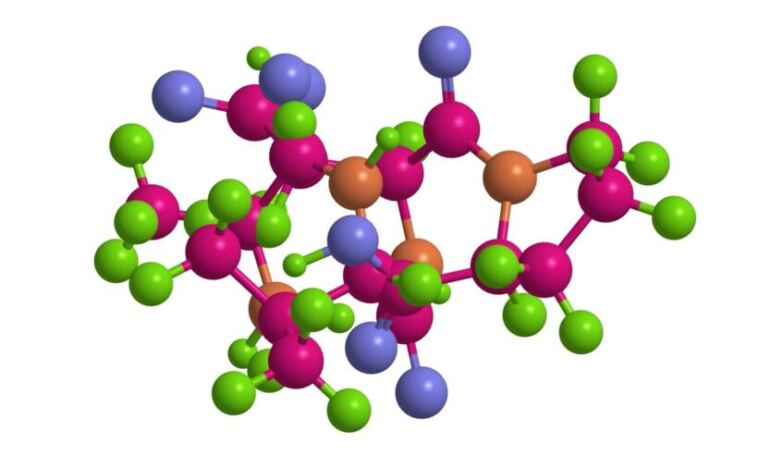- Like
- SHARE
- Digg
- Del
- Tumblr
- VKontakte
- Flattr
- Buffer
- Love This
- Save
- Odnoklassniki
- Meneame
- Blogger
- Amazon
- Yahoo Mail
- Gmail
- AOL
- Newsvine
- HackerNews
- Evernote
- MySpace
- Mail.ru
- Viadeo
- Line
- Comments
- Yummly
- SMS
- Viber
- Telegram
- JOIN
- Skype
- Facebook Messenger
- Kakao
- LiveJournal
- Yammer
- Edgar
- Fintel
- Mix
- Instapaper
- Copy Link
Introduction
Copper peptides have gained attention and become a vital research topic in the cosmetic and pharmaceutical industry as a result of the benefits they provide to the human body.
For example, they can be applied topically to firm up the skin and eliminate wrinkles and sagging. They also improve the body’s immunity and its healing abilities.
But what are copper peptides, how are they formed or manufactured, and why are they significant? Read on to learn more.
What Are Copper Peptides?
As the name suggests, copper peptides are made by a combination of copper ions and peptides, with both helping the body individually. Peptides refer to a string or chain of two or three amino acids in the body. Essentially, peptides are the fundamental building blocks of the protein molecules in the body called polypeptides. These protein molecules take care of almost all cell processes in the body.
Then when combined with a copper ion, the peptides form copper peptides, copper Tripeptides, or GHK-cu. The three amino acids found in copper peptides are glycine, histidine, and lysine.
Although copper peptides are naturally occurring in the body, peptides made in the laboratory have had similar effects as their naturally occurring equivalents. For this reason, the skincare industry relies on copper peptides to make certain products, while pharmaceutical companies use them in the manufacture of specific medications.
What Is The Role Of Copper Peptides?
#1. They provide therapeutic and regenerative benefits to the body
When ingested or applied topically, copper peptides induce the production of collagen and elastin – vital proteins required for skin rejuvenation, tissue healing, healthy skin and growth of hair. In addition, collagen enhances the skin elasticity and prevents sagging of the skin.
In this way, you can use copper peptide products to deal with skin wrinkles and fine lines more effectively. Copper itself is a vital co-enzyme that also helps in the production of collagen.
#2. Protection from free radicals and UV rays
Copper peptides help by combating free radicals inside the body. Free radicals in the body are lead to chronic health issues such as cataract, cancer, cardiovascular and inflammatory concerns.
In addition, copper peptides safeguard the skin from UV rays from sunlight. The UV rays decrease the skin’s ability to regenerate and delay signs of aging like wrinkles and age spots.
#3. Anti-oxidant and treatment for hyperpigmentation
Copper peptides are a strong body anti-oxidant and can be used to treat hyperpigmentation. Hyperpigmentation refers to black spots on the skin caused by excess melanin production. Hyperpigmentation can be caused by excess exposure to the sun, use of certain medications, inflammations, pimples, and physical injury.
#4. Enhancing skin tone
Some studies have indicated that copper peptides can also trigger an increase in hyaluronic acid, which gives the skin an even tone and helps to keep it moisturized and hydrated.
Also, since copper peptides have strong healing properties, they can support or improve skin health and the healthy growth of hair.
#5. Anti-inflammatory benefits
Copper peptides have strong anti-inflammatory properties and treat skin redness or scarring. Moreover, through skin inflammation treatment, copper peptides can be used to manage acne scars, the appearance of skin blemishes, fine lines, and age spots.
Production Of Copper Peptides
Although copper peptides are present in the body, their supply, and subsequently the production of collagen, is likely to diminish as an individual ages. It is therefore normal for the individual may begin to experience signs of aging.
Copper peptides are manufactured and sold as facial moisturizers, serums, eye creams, and face lotions. These products help to the skin to heal and to stay hydrated and rejuvenated,
Copper Peptides Vs. Vitamin C
Vitamin C is widely used to manufacture skin care creams and serums. To some consumers of skin care products, copper peptides seem to challenge vitamin C’s ability to soften or remove wrinkles and enhance skin tone.
In truth, no specific study has compared the antioxidant benefits of vitamin C to those of copper peptides. But there is no doubt that both copper peptides and vitamin C are reliable ingredients for skin care products.
However, experts aver that copper peptides may have the upper hand as they are more easily integrated and tolerated in the skin than vitamin C or retinols. There are fewer chances of developing interactions or other issues with copper peptides.
And so copper peptides may be the better option for individuals with sensitive skin. Please note: do not combine copper peptides and vitamin C, which may cause copper to oxidize vitamin C.
Do Copper Peptides Have Any Side Effects?
Copper peptides have a low risk of triggering side effects or allergic reactions. However, some users may experience itchy skin, burning sensations, redness, or hives.
Conclusion
Before using any skin care products, test them on a small hidden area on your skin, like the elbow or behind the knee, and confirm if the product irritates your skin.
Whatever product you use, ensure you follow the manufacturer’s instructions for use and safety. Significantly, it is always a great idea to talk to a dermatologist before using any skincare products.
About Theresa Duncan
Originally from Detroit, MI, Theresa has been offering health and fitness advice for the last 30 years while working as an engineer. She decided to turn her passion into a profession, and finds nothing more satisfying than helping others reach their health and fitness goals.

